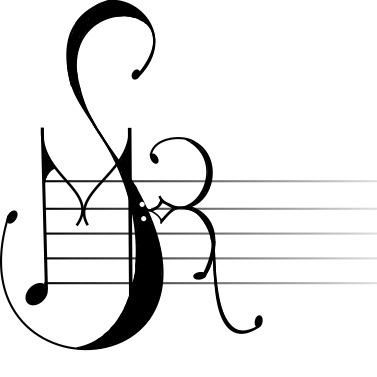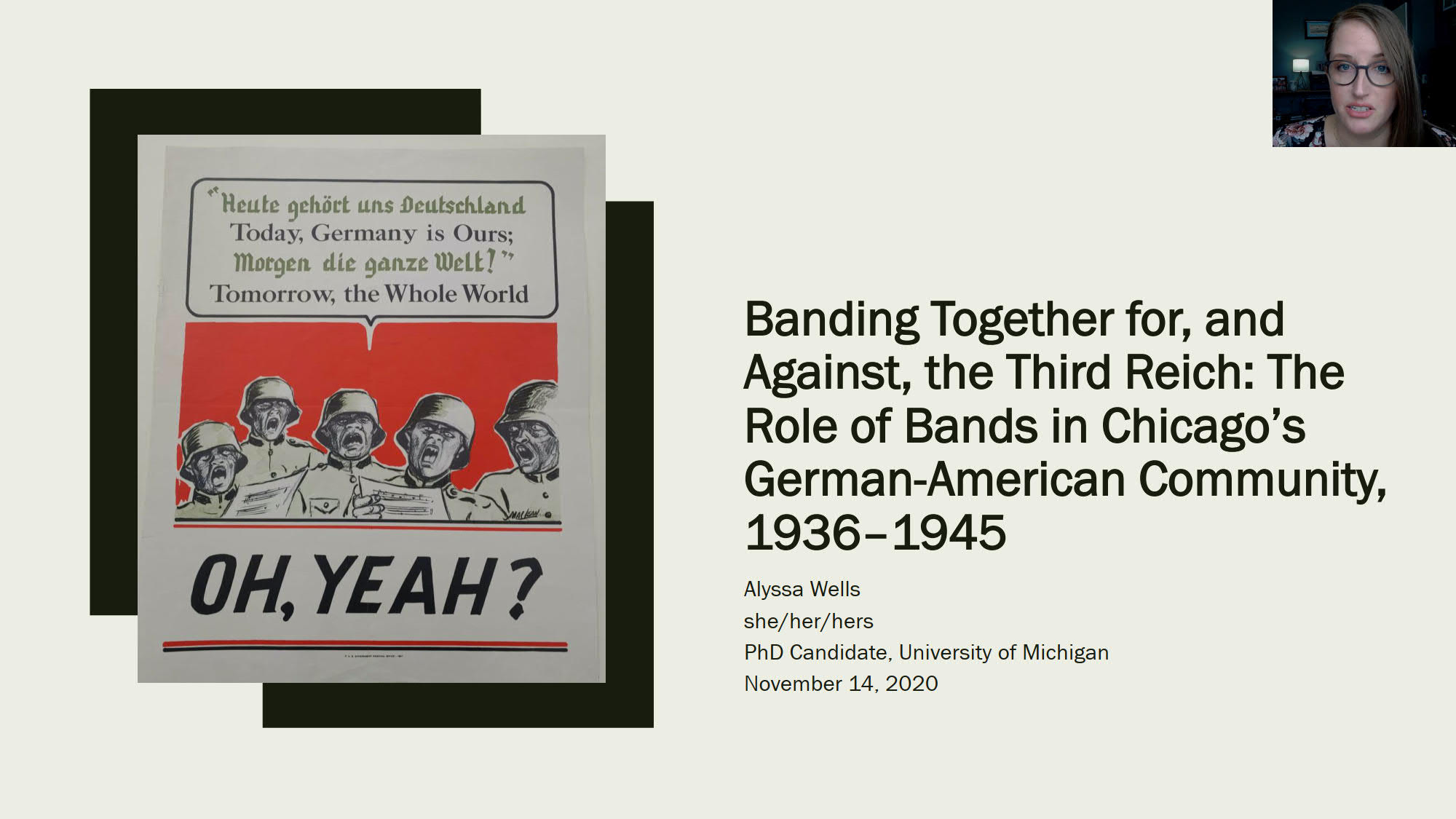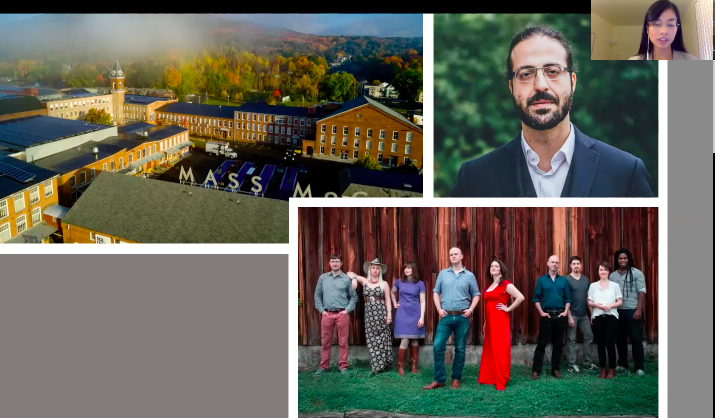
At an American Musicological Society (AMS) conference like no other, four SMR members presented projects covering a spectrum of subjects. Alyssa Wells presented on the pro- and anti-Nazi movements among bands and drum & bugle corps in Chicago in the 1930s and 1940s, examining the ways in which they acted as cultural brokers. Nee Chucherdwatanasak presented on a study collaborative composition in the context of the award-winning vocal octet Roomful of Teeth. Congratulations to all who presented in this strange year! For more information, please see the pictures and abstracts below.
Pictures: Click to enlarge and view captions
Banding Together Against—and for—Nazism: Bands as Cultural Brokers in Chicago’s German-American Community
Alyssa Wells
On December 6, 1942, the German-American Anti-Axis League held a rally at Chicago’s St. Michael’s Catholic High School in an effort to formally decry Nazism among German-Americans and declare their fealty to the United States. Three musical groups performed: the Anti-Axis Singers, the St. Michael’s High School Band, and the Veterans of Foreign War Post 3582’s Drum & Bugle Corps. Local newspapers like the Northtown Economist commended the band and drum & bugle corps for providing a patriotic and inspiring backdrop for the rally. Although this was the first large-scale rally of its type, it was but the latest instance wherein bands aided in legitimizing a political movement and helped to garner support from Chicago’s German-American community in the 1930s and 1940s. On the opposite end of the political spectrum, the Chicago’s chapter of the German American Bund, an American Nazi organization, maintained a marching band. Perhaps most notably, the German American Bund Band donned their Sturmabteilung [Stormtrooper] uniforms for a performance during Chicago’s 1937 German Day Celebrations. Despite the frequency with which bands performed at political events within Chicago’s German-American community, scholars have yet to explore how they could bridge, or create, political and cultural divides.
In this paper, I examine how the bands and drum & bugle corps of two disparate movements served as cultural brokers (Geertz 1960) whose prevalence in both German and American cultures allowed them to appropriate sonic space in a familiar way and draw immediate attention to their group’s messages. Applying theories of sonic mediation (Revill 2015) and cultural brokerage to the archival materials I obtained from the United States National Archives, as well as eight Chicago libraries, archives, German cultural associations, and churches, I reveal how Chicagoans were embroiled in a sonic battle over German-American’s political allegiances. I ultimately call for further investigation into how amateur bands and drum & bugle corps have shaped sonic, social, and political landscapes during moments of intra- and intergroup conflict.
Composing Together: Collaboration and Creativity in the New-Music Scene
Nathinee Chucherdwatanasak
Founded with an aim to “reimagine the expressive potential of the human voice,” the vocal octet Roomful of Teeth has ventured into non-Western and non-classical singing traditions. The group’s occupation with idiosyncratic singing techniques requires its singers to work closely with composers to collaboratively design compositions that suit individual vocalists’ technical abilities and preferences. This close interaction between the singers and composers often results in compositional details that are present in performances but absent from the score. On the surface, such devoted collaboration seems to challenge the ideal of Werktreue (Goehr 1992), since a written score and composer’s intentions do not necessarily stand as authoritative. Yet, William Robin argues that under the conditions of neoliberalism, specially devised pieces serve as a significant brand identity for an ensemble to distinguish itself from others in a crowded marketplace (2018). Such conditions thus authorize Roomful of Teeth’s performances and recordings of compositions written specifically for the group, while hindering other vocal ensembles from delivering sanctioned interpretations. In this sense, collaborative working relationships between composers and performers lead to practices that re-subscribe to, instead of denouncing, the Werktreue ideal.
This paper examines the power dynamics between contemporary composers and performers through the compositional and rehearsal processes of composer Mary Kouyoumdjian’s Mustard Sweatshirts are Forever (2019) for Roomful of Teeth. My research combines score and recording analyses with an ethnographic study of the group’s residency at the Massachusetts Museum of Contemporary Art in 2018, as well as interviews with the group’s composers, singers, and music director. Such close collaboration between composers and performers create complexities of authorship, when the authenticity of a work depends on its “original” performers as much as its composer. It presents an alternative mode of musical creativity in the new-music scene, suggesting different pathways toward producing, presenting, and canonizing classical music in the early twenty-first century.
Recent Posts
SMR to Host Midwest Graduate Music Consortium 2025 Conference – January 13, 2025
SMR Welcome BBQ at County Farm Park – October 01, 2024
Julian Grey defends dissertation – June 05, 2024
Michaela Franzen defends dissertation – May 21, 2024
Kai West defends dissertation – May 16, 2024
Micah Mooney and Carlos Pérez Tabares present at Music Theory Midwest – May 12, 2024
SMR end-of-year round-up at County Farm Park – April 25, 2024
SMR hosts Research Showcase – September 29, 2023
 Society for Music Research
Society for Music Research

